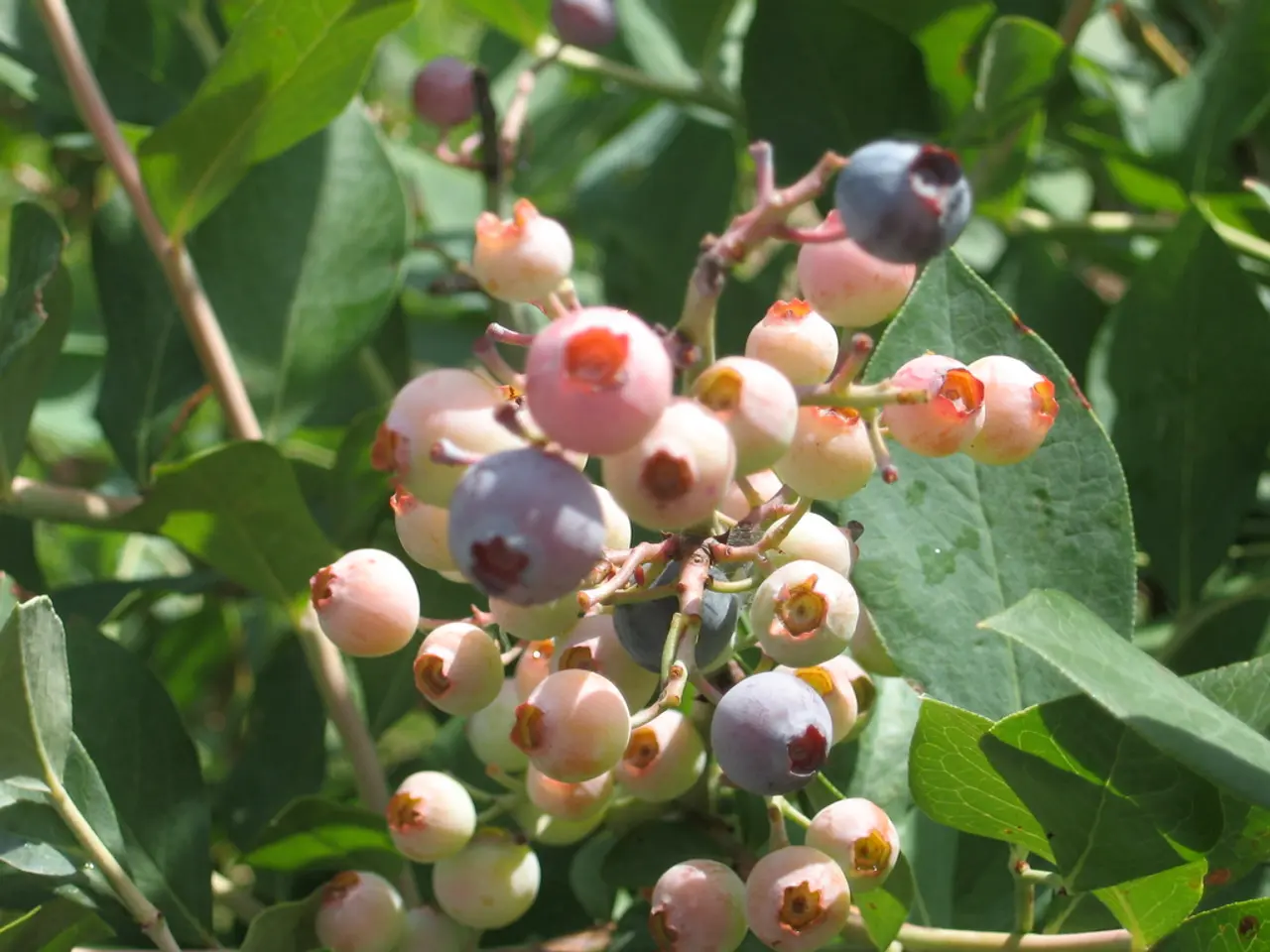Discovering 8 under-the-radar berries for potent antioxidant protection
Berries, often considered as nature's candy, are not just sweet treats but also powerhouses of nutrients that can contribute to healthier aging. From the common blueberries and pomegranates to the lesser-known thimbleberry and lingonberry, these fruits are packed with antioxidants, fiber, vitamins, and anti-inflammatory compounds.
The Antioxidant Advantage
Ingesting the compounds in these fruits can confer antioxidant protection to humans, helping to defend the body against the effects of aging and illness. Berries are rich in antioxidants such as anthocyanins, which neutralize harmful free radicals that contribute to cellular damage, chronic diseases (like heart disease and cancer), and aging processes. These antioxidants help protect healthy cells from oxidative stress, a major factor in aging and disease development.
Anti-Inflammatory Properties
Berries also contain plant compounds that reduce inflammation in the body, potentially lowering the risk of chronic inflammatory diseases such as arthritis and multiple sclerosis.
Support for Heart Health
The combination of antioxidants and fiber in berries can improve cardiovascular health by reducing oxidative stress and improving blood vessel function.
Brain Health and Cognitive Support
Anthocyanins and other antioxidants in berries may enhance brain function and delay cognitive decline associated with aging.
Blood Sugar Regulation
Berries have low sugar levels and high fiber content, which help regulate blood sugar and may benefit people with diabetes or prediabetes.
Gut Health Benefits
The dietary fiber in berries supports digestion, promotes a healthy gut microbiome, and helps with satiety and weight management.
Nutrient Density
Apart from antioxidants, berries provide essential vitamins such as vitamin C, vitamin K, and minerals like manganese, all of which support overall health and healthy aging.
Among berries, blueberries are especially noted for their high antioxidant levels, particularly anthocyanins, which contribute to many of these protective effects.
Exploring Less Common Berries
Some less common berries, such as barberry, marlberry, lingonberry, salmonberry, and bayberry, can be found freeze-dried or as berry powders online, and studies indicate they still pack a powerful nutritional punch. For instance, the Aronia berry, also known as the chokeberry, has the highest ORAC values recorded among berries due to its high content of chlorogenic acid.
In conclusion, regularly consuming antioxidant-rich berries can contribute to healthier aging by protecting cells from oxidative damage, reducing inflammation, supporting heart and brain health, and improving metabolic and digestive functions. These berries, whether common or less known, can be a delicious and nutritious addition to any diet.
[1] https://www.healthline.com/nutrition/berry-benefits [2] https://www.ncbi.nlm.nih.gov/pmc/articles/PMC3726313/ [3] https://www.ncbi.nlm.nih.gov/pmc/articles/PMC3745733/ [5] https://www.ncbi.nlm.nih.gov/pmc/articles/PMC5664031/
- The scientific study of health-and-wellness benefits reveals that berries, including lesser-known varieties like barberry and marlberry, are rich in antioxidants that can combat inflammation in the body.
- Nutrition science has shown that regular consumption of these fruits, such as pomegranates and blueberries, not only improves metabolic functions but also supports gut health by promoting a healthy gut microbiome and satiety.
- Skin-care enthusiasts may find interest in the anti-aging properties of berries, as their antioxidants can help protect skin cells from oxidative stress and prevent premature aging.
- Fitness-and-exercise buffs can integrate berries into their nutrition plans, as their high fiber content can aid in weight management and blood sugar regulation, benefiting those with diabetes or prediabetes.




